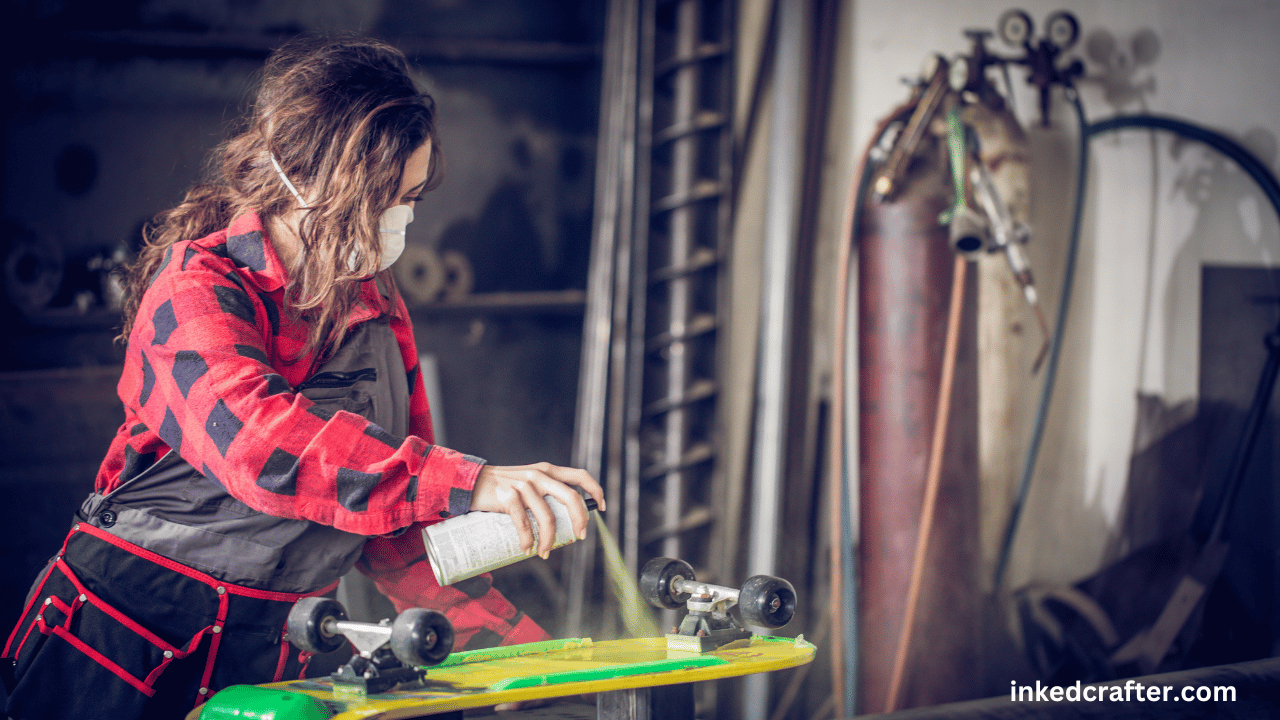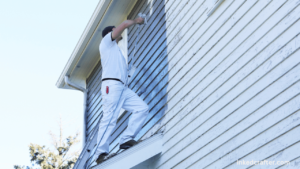Have you ever inquired about the possibility of spray paint freezing? It’s possible that you’ve forgotten a can of spray paint in your garage during the winter, and you’ve been concerned about whether or not it will still be functional when you need it. You are not the only one though.
To guarantee that your spray paint remains in pristine condition, it is vital to have a clear understanding of the answer to the question that is asked by a large number of people. This article will discuss whether or not spray paint can freeze, as well as the reasons why it can happen and the steps that can be taken to avoid it from happening.

Contents
- 1 Acquiring Knowledge of Spray Paint
- 2 Paint that is sprayed can freeze.
- 3 Can anybody explain why spray paint freezes?
- 4 Ways to Prevent Spray Paint from Freezing Solid
- 5 Conclusion
- 6 FAQs
- 7 Can spray paint freeze in cold temperatures?
- 8 What happens if spray paint freezes?
- 9 How can I prevent spray paint from freezing?
- 10 Is it safe to use spray paint that has frozen?
- 11 Can I thaw frozen spray paint?
Acquiring Knowledge of Spray Paint
To begin, let’s have a basic understanding of what spray paint is as a medium. Paint that is applied with a nozzle that emits a fine mist of paint is referred to as spray paint. Spray paint is a type of paint that is packaged in a can.
It is frequently utilized for a wide range of undertakings, such as painting furniture, creating graffiti art, doing touch-ups on automobiles, and making crafts at home. Spray paint is available in a variety of varieties, including acrylic, enamel, and lacquer, each of which has its own set of characteristics and applications.
Paint that is sprayed can freeze.
Yes, spray paint can freeze, to answer your question in a nutshell. Spray paint, like many other liquid substances, contains solvents that undergo freezing when they are subjected to temperatures that are below freezing.
The performance and quality of spray paint might be negatively impacted when it undergoes freezing. Take, for instance, the possibility that the consistency of the paint could shift, which could result in uneven coverage or clogged nozzles.
There is also the possibility that freezing could cause the can to expand and possibly rupture, which will result in a mess and leave the paint impractical to use.
Can anybody explain why spray paint freezes?
It is due of the composition of spray paint that it freezes. The vast majority of spray paints contain volatile solvents such as acetone, toluene, or butane, which expedite the drying process and ensure that the paint adheres appropriately to surfaces.
Due to the fact that these solvents have low freezing points, it is possible for them to solidify at temperatures that are relatively high. The solvents in spray paint have the potential to crystallize when they are subjected to cold temperatures, particularly below freezing, which subsequently causes the paint to freeze.

Ways to Prevent Spray Paint from Freezing Solid
Given that we are aware that spray paint can freeze, let’s talk about ways to avoid this happening. Storing spray paint in the appropriate manner is the most effective method for preventing it from freezing. I have some advice for you:
Keeping Spray Paint Indoors: Make sure to store your spray paint inside in a climate-controlled location where the temperature stays above freezing.
Avoid Extreme Temperatures: Spray paint should not be exposed to temperatures that are too high or too low. For example, you should not leave it in a room that is too hot in the summer or too cold in the winter.
Maintain Frost Protection: If you store spray paint in a garage or shed, it must be insulated and protected from frost.
Hold Spray Paint Cans Vertically: Hold spray paint cans in an upright position to avoid the nozzle becoming clogged or from freezing shut.
Before using spray paint in cold weather, make sure the paint is thoroughly mixed and at the appropriate consistency by aggressively shaking the can. Shake the can before using spray paint by shaking it.
Through the application of these guidelines, you will be able to extend the lifespan of your spray paint and guarantee that it will continue to be usable even when the temperature is low.
Conclusion
In conclusion, the solvents that are present in spray paint do, in fact, cause it to freeze. Because freezing can have an effect on the quality and performance of the paint, it is vital to store it in the appropriate manner in order to avoid this from occurring.
If you store spray paint inside, stay away from temperatures that are too high or too low, and take the necessary measures, you can assure that your paint will remain in excellent condition and be ready for your next project.
FAQs
Can spray paint freeze in cold temperatures?
Yes, spray paint can freeze in cold temperatures, especially if exposed to temperatures below freezing.
What happens if spray paint freezes?
When spray paint freezes, it can affect its consistency and performance. The paint may become thicker or clumpy, leading to uneven coverage or clogged nozzles. Additionally, freezing can cause the can to expand and potentially burst.
How can I prevent spray paint from freezing?
To prevent spray paint from freezing, store it indoors in a climate-controlled environment where temperatures remain above freezing. Avoid exposing spray paint to extreme temperatures and protect it from frost. Store spray paint cans upright and shake them before use in cold weather.
Is it safe to use spray paint that has frozen?
It’s not recommended to use spray paint that has frozen, as it may not perform as intended and could lead to issues such as clogged nozzles or uneven coverage. It’s best to discard frozen spray paint and use a fresh, unaltered can for your project.
Can I thaw frozen spray paint?
While it’s possible to thaw frozen spray paint by bringing it indoors and allowing it to reach room temperature, there’s no guarantee that the paint will return to its original consistency and performance. Thawing may not reverse any damage caused by freezing, so it’s generally best to use caution and avoid using frozen spray paint if possible.








